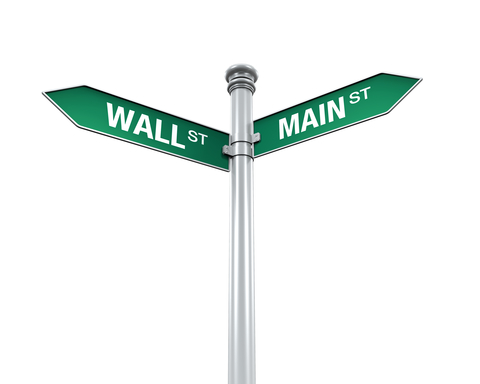 The market has been amazing for more than 8 years (since March 2009): the Dow gained more than 14,000 points and the S&P tripled. That upward move is great for investors, but what does it tell small business owners on Main Street?
The market has been amazing for more than 8 years (since March 2009): the Dow gained more than 14,000 points and the S&P tripled. That upward move is great for investors, but what does it tell small business owners on Main Street?
Here’s my take…
Improving economy
It’s an old belief that the stock market is a predictor or leading indicator of the economy in the near future (say six months hence). Whether this holds true today can be debated. What seems certain, however, is that the economy continues to improve (although somewhat anemically), and the stock market has essentially predicted this.
My take: As the stock market continues to ascend, small business owners can remain optimistic. But the economy hasn’t improved at a robust pace, so optimism shouldn’t be “exuberant.”
Disrupters
Many of the best performing stocks are disrupters, meaning that these companies don’t do business in the usual way. They cause disorder or turmoil by changing the way in which we do business. Old disrupters included FedEx and Amazon, each of which transformed shipping and shopping. CNBC’s list of Disruptor 50 for 2017 include the top three: Airbnb, Lyft, and WeWork. (Note that most disruptors are not publicly-traded.)
My take: You don’t have to be or become a disruptor to succeed. You can use existing ones to conduct your business better. The Disruptor 50 list includes, for example, SurveyMonkey, for doing surveys of customers and prospects, Cylance, which provides cybersecurity with artificial intelligence, and WeWork, which provides shared office space for entrepreneurs, freelancers, and startups.
Brick-and-mortar on the ropes?
Some of the poorest performing stocks in the market are the big retailers … Kmart, J.C. Penney’s, Macy’s, and Sears. Their earnings are down and they’re closing thousands of stores (RadioShack closed 1,000 stores over the Memorial Day holiday). See a full list of closures from Clark Howard, a consumer expert and radio talk show host.
My take: The stock market shows that consumers want to shop online or from discount outlets. However, niche boutiques on Main Street can still succeed if they build relationships with customers. For example, Range.me suggested that “retailment,” a fusion of retail and entertainment that creates an Instagram-worthy shopping experience can succeed.
Small retailers in malls and strips that had been anchored by now-closed large retailers need to re-think their future and what they can do to bring in customers.
Conclusion
There’s more reason to keep your eyes on Wall Street than just to see how your retirement savings are doing. Monitor the trends in the market so you can adapt your business practices accordingly.


